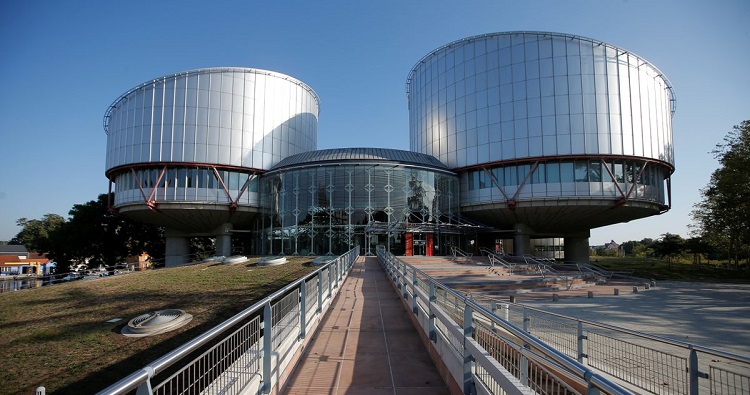ECHR holds Russia responsible for human rights violations against 2 Georgian citizens in occupied Abkhazia

The Court held that Russia was to pay €35,000 each [applicant] “in respect of non-pecuniary damage” and €23,300 jointly in respect of costs and expenses. Photo via Reuters
The European Court of Human Rights on Tuesday unanimously held Russia responsible for violating three articles of the Human Rights Convention, including inhuman treatment, right to liberty and security, as well as right to a fair trial in a case concerning Levan Mamasakhlisi and Grigol Nanava’s unlawful arrests, ill-treatment and detention.
The case concerned events prior to the armed conflict between Georgia and Russia in 2008, the arrests of Mamasakhlisi and Nanava in 2001 and 2003, and their alleged ill-treatment, conviction and continued detention by the de facto authorities of Georgia’s Russian-occupied Abkhazia.
The arrests and detention of Mamasakhlisi and Nanava were recognised as “unlawful” since neither of the applicants had received “adequate medical attention” or benefited from a “fair hearing by an independent and impartial tribunal” established by law.
Judgment Mamasakhlisi and Others v. Georgia and Russia - Russia responsible for unlawful arrests, ill-treatment and detention of two vulnerable men by de facto Abkhaz authoritieshttps://t.co/VD0JvsDN1Y#ECHR #CEDH #ECHRpress pic.twitter.com/cFLdLsQ160
— ECHR CEDH (@ECHR_CEDH) March 7, 2023
Mamasakhlisi was found guilty by the de facto Abkhaz courts of treason in 2001 and Nanava was arrested for terrorism in 2003. They were sentenced to 12 and six years in prison, and were eventually pardoned on “humanitarian grounds”.
The ECHR established no violation of the convention by Georgia, and it “specifically considered” that the country’s Government had done “everything within its power to secure” the applicants’ rights under the Convention, however, it had been faced with the “persistent refusals” of the de facto authorities to cooperate, while they had not been able to benefit from the assistance of a lawyer.
The Court concluded that, due to its [Russia’s] sustained and substantial political and economic support for Abkhazia and dissuasive military involvement, Russia had exercised effective control and decisive influence over the area and thus had jurisdiction in respect of the matters complained of”, the judgement said.
The Court held that Russia was to pay €35,000 each [applicant] “in respect of non-pecuniary damage” and €23,300 jointly in respect of costs and expenses.
 Tweet
Tweet  Share
Share